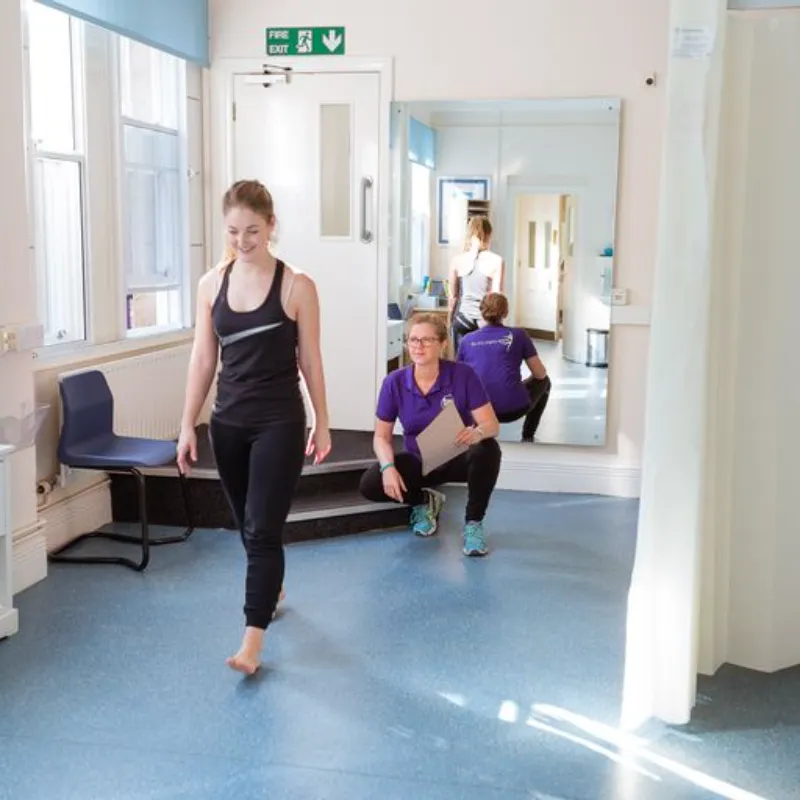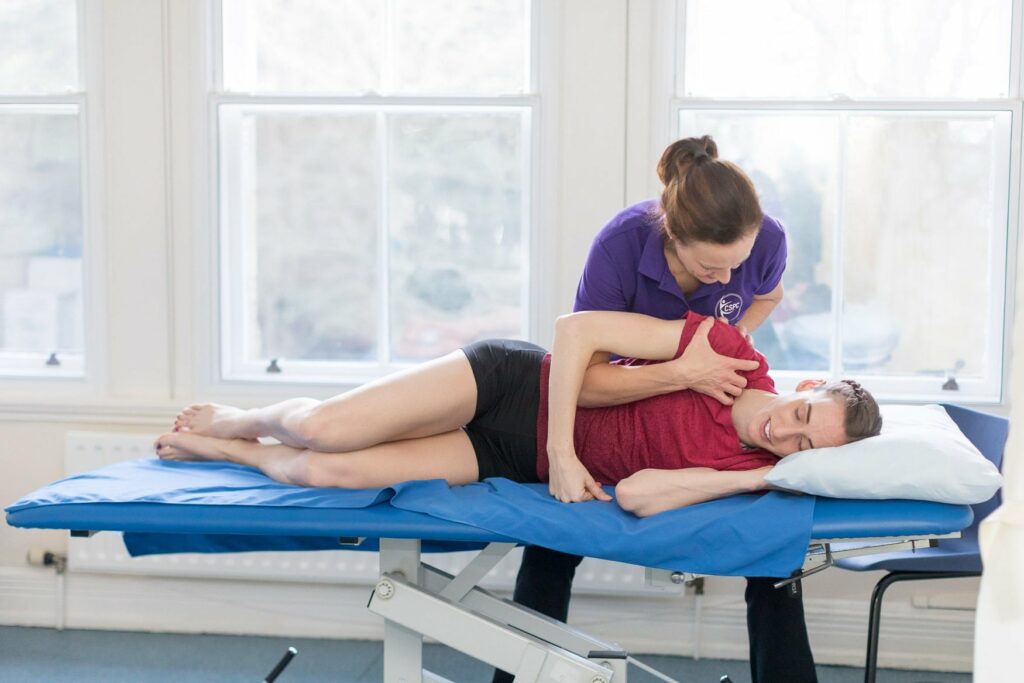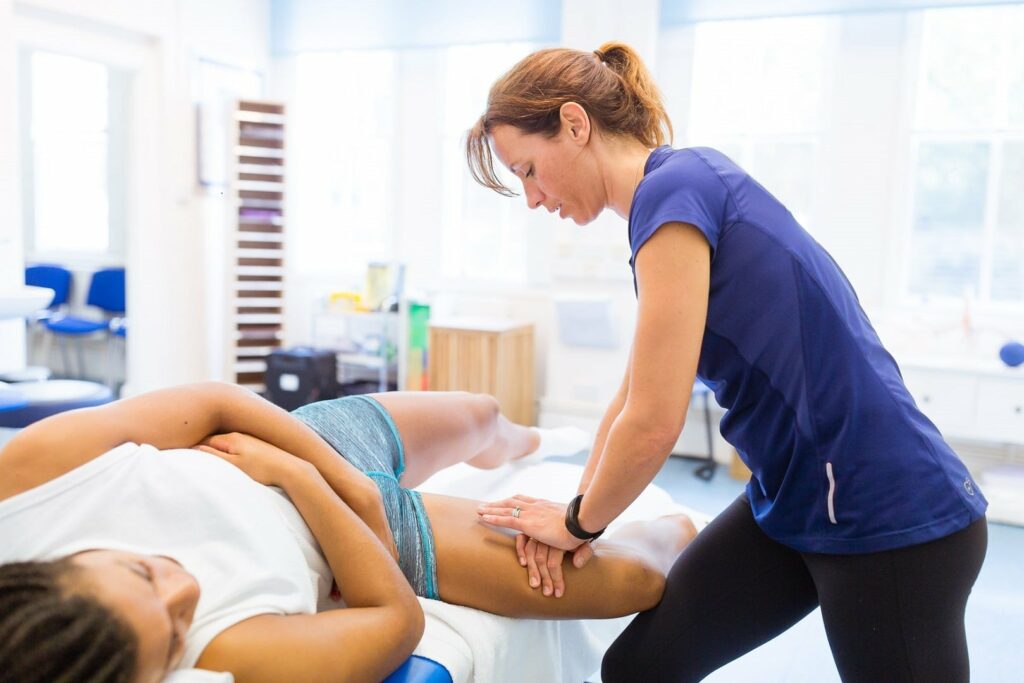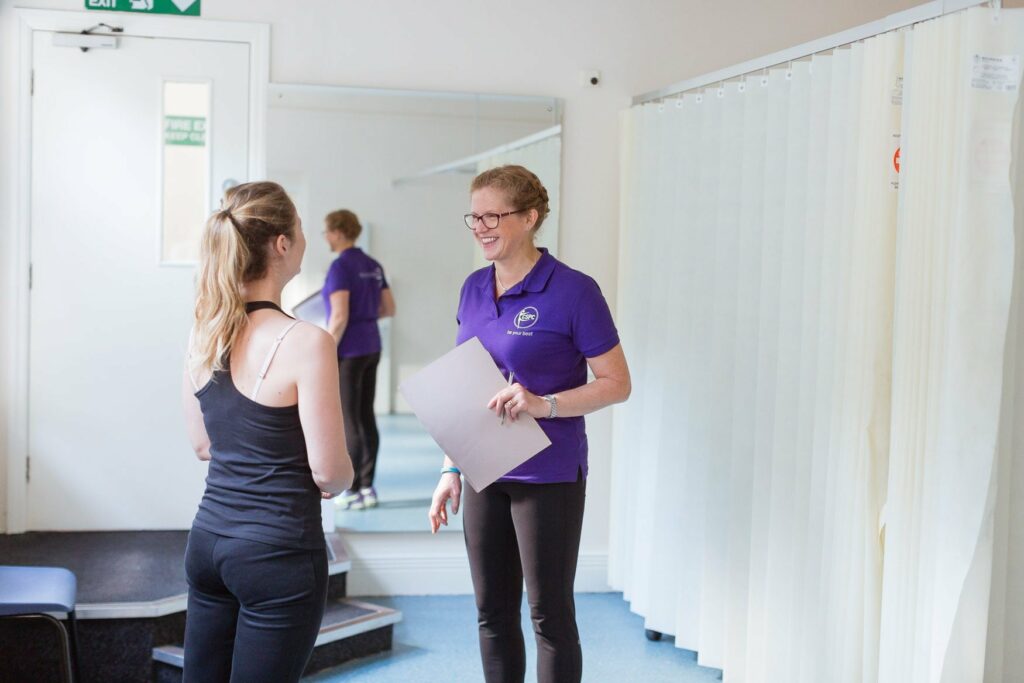Surgery, whether through choice, or after a trauma is often just the start of a long journey to recovery.
While surgery may be required to address underlying issues, it is also important to have a recovery and rehabilitation plan that is tailored for you. Often that will include some hands-on treatment. Most surgeries will need a period of immobilisation, whether that is in a cast, brace or a walking boot, and for most of the abdominal surgeries, simple rest is needed.
The reason that physiotherapy is vital after surgery is that scars can become thickened, adhesed and stuck to the underlying tissues, causing problems of their own; joints can become very stiff and result in altered movement patterns, which can have an effect elsewhere in the body, and muscles can become short, weak and dysfunctional very quickly.
Often with chronic problems that result in surgery, the person has already developed other compensatory issues pre-operatively, which if left untreated can result in incomplete recovery and a lasting effect on the body and our activity levels. We often see patients who have been given very appropriate exercises after surgery, but are unable to do them well, because the joints have become too stiff and therefore they are unable to stretch the surrounding muscles, nor are they then able to strengthen those muscles through range.
It is natural for the tissues in the body to tighten as a protective mechanism post trauma, surgery, or immobilisation but it can take a specialist, very hands-on approach to regain muscle length and joint mobility, so that normal activities can be resumed.

The physiotherapists at CSPC have experience gained from working in elite sport, where athletes need to be able to get back to training and their sport as quickly as possible, and if a holistic approach is not taken, other injuries may occur further down the line, as they get back into training. We apply this approach to all of our clients, optimising recovery to ensure that they also get back to normal levels of activity as soon as possible.
In addition to assessing the original injury or area, our physiotherapists will carry out a full musculoskeletal assessment, taking into account your eventual aims. From this, your physiotherapist will design a comprehensive, personalised rehabilitation plan, which will not just include specific exercises but also include hands-on manual physiotherapy treatments and advice regarding the management of your condition. Your plan will be designed to complement your post-operative guidelines or specific protocols set by your own consultant.
Your recovery will depend on the exact nature of the surgery you have had, the length of time you have had your symptoms, your personal fitness and your own health. Your rehabilitation plan will reflect these and be tailored to you and be modified accordingly as your condition improves.
Orthopaedic Surgery
General Surgery, Abdominal and Gynaecological Surgeries
Cancer
Breathing
It is normal for your breathing pattern to be affected after surgery, especially if we have had to rest, are in pain, or it is sore to breathe deeply. This can be improved with manual treatment and breathing retraining exercises aimed at restoring your normal breathing patterns and improving your confidence and ability to return to activity.
MEET THE TEAM
Constantly challenging ourselves to be the best
See why patients
love CSPC Physiotherapy



